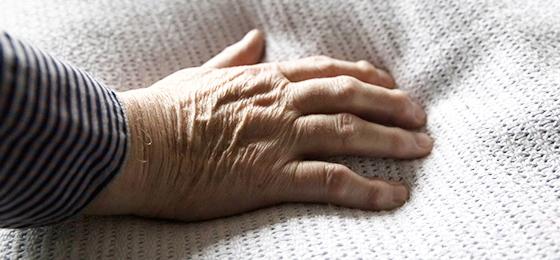27 Nurse-led care models reduce unplanned hospital admissions
Nurses, physicians and those concerned jointly developed and tested a nurse-led care model for people in nursing homes with the aim of reducing the number of unnecessary hospitalisations. The new model used specifically trained nursing professionals to improve the medical and nursing care provided.
Project description (completed research project)
In the first phase, based on international literature and interviews with residents and their families, a prototype nurseled care model was developed in conjunction with stakeholders. In the second phase, leadership teams from eleven nursing homes in German-speaking Switzerland were prepared on site and the nurses were given specific training for their new role. Finally, the impact of the model on coordination and quality of care, professionals’ satisfaction, residents’ quality of life, number of hospitalaisations and costs were examined.
Background
Older people in nursing homes are increasingly suffering complex disorders. To avoid unnecessary hospitalisations it’s particularly important for all professionals involved to work together closely. International studies show that nurseled models can reduce the number of unnecessary hospitalisations. In a nurseled model, nurses with indepth knowledge of geriatric care take on the clinical management of patients and coordinate the cooperation with general practitioners and hospitals.
Aim
The aim of the study was to develop and test a nurse-led care model for chronically ill residents of Swiss nursing homes with the intention of reducing unnecessary hospitalisations. The model was designed in such a way that it can be used in real life in nursing homes of different sizes and with different levels of equipment.
Results
All eleven nursing homes successfully and sustainably implemented the nurseled care model. The integrated learning for the nursing staff with coaching and feedback was beneficial. The nurse specifically trained for the model and the communication tools were particularly well received by the nursing staff. The study shows that thanks to the nurseled model, the number of unplanned hospital admissions can be successfully reduced. From the perspective of the nursing homes, this model has a positive cost-benefit ration when comparing the costs for the introduction of the model and the deployment of the specialised nurse with the loss of revenue due to unplanned hospital stays of residents.
Relevance / Application
Significance of the results for research and practice:
The nurseled care model developed in the study was specifically adapted to nursing homes in German-speaking Switzerland in order to strengthen geriatric expertise and reduce hospitalisations. It improved access to geriatric expertise and enhanced interprofessional cooperation and coordination. The results of the study provide nursing home managers and health policy-makers with valuable information on the best design of nurseled care models in long-term care. Nursing homes from other regions can adopt this model and modify it according to their specific needs.
Original title
Nurse-led care models in Swiss nursing homes: improving interdisciplinary care for better resident outcomes (INTERCARE)

